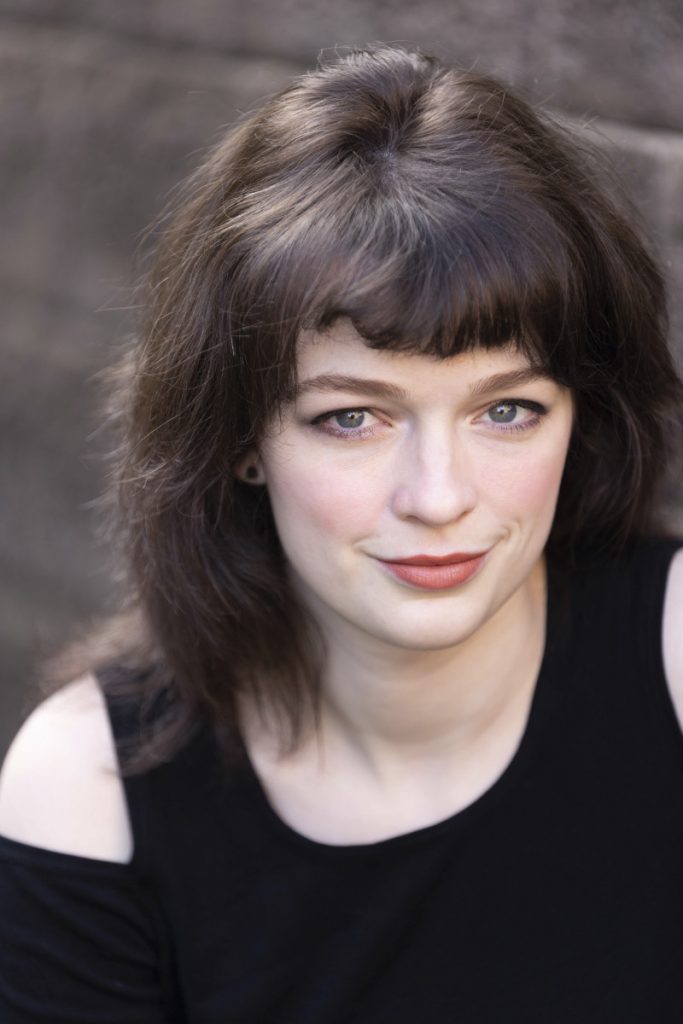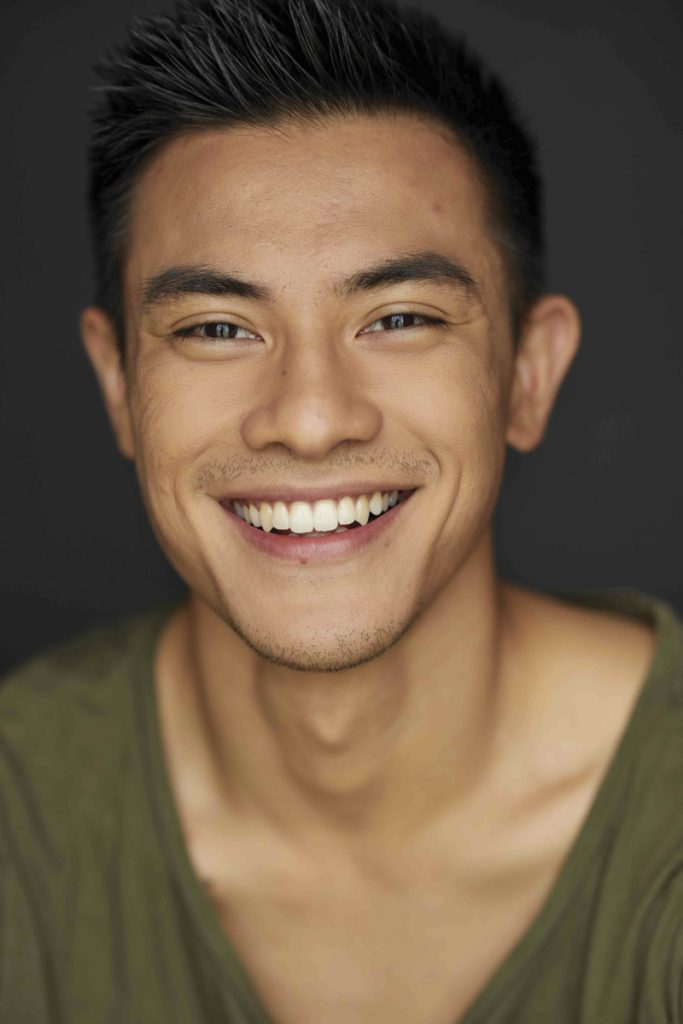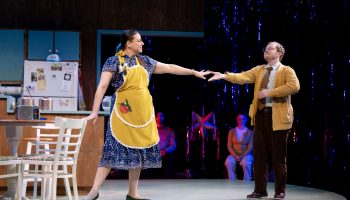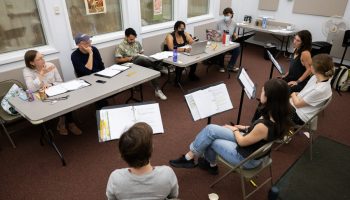It all started with Julius Caesar.
Tori Jewell, one of the Chautauqua Theater Company’s conservatory actors, first met CTC Artistic Director Andrew Borba when he directed her in a production of Shakespeare’s Julius Caesar at the University of North Carolina at Chapel Hill.

Meanwhile, for yao, another conservatory actor, the relationship with the Bard’s play goes even deeper. yao memorized a monologue from the play at age 7 during an elementary school unit on Ancient Rome. He performed the monologue in front of the whole school and received a “Well Done” pin for his efforts.
“And that was it,” yao said. “That was my first hit of the drug. Being in front of an audience, and then validation? It’s too much. It was too much for my little 7-year-old brain, and that was it.”
Jewell and yao will star in CTC’s New Play Workshop of Through the Eyes of Holly Germaine, by Y York. Set in 1986, the play tells the story of a group of people on vacation in the Canary Islands. Marooned there by an oil spill, tensions and secrets bubble up to the surface. Through the Eyes of Holly Germaine will premiere at 7:30 p.m. Wednesday, July 20, in Bratton Theater.
Jewell plays the titular Holly Germaine, which is the stage name of an aspiring actress – she doesn’t think the character’s birth name is ever revealed. Holly is a new variable thrown into preexisting relationship dynamics between the other three characters: married couple Edwina and Simon, and engineer Tyler, yao’s character. The script describes Holly as a “conversational track jumper,” and Jewell is interested in her illogicality.
“That’s the thing about humans, is that they’re not always A plus B equals C, they’re not always logical in their actions or their thinking,” Jewell said. “And so I’m looking forward to trying to find where that lives, in reality and in the script, without trying to imitate it, so trying to actually find that as opposed to mimic this real phenomenon.”
In the wake of ecological disaster, York brings themes of environmentalism to light while attending to the messy human relationships at the play’s core. yao said that the relationships are elegantly foregrounded against the backdrop of catastrophe.

He has been studying theatrical style during his Master of Fine Arts program at Yale, and compares Holly Germaine to a Victorian manor drama. The characters are trapped in a fishbowl scenario, where emotional tensions are exacerbated and the relational stakes are high. Meanwhile, the question of how to cope with large-scale calamity haunts the story.
“That is what’s most fascinating to me,” yao said. “It’s the perennial problem that we all face, that the world may be going to shit around us, but … our hearts are still very much being pulled apart by the people around us. And how do you juggle two things at once? How do you keep both things a priority? How do you really cope with disaster or catastrophe?”
Jewell similarly spoke to the contradictions inherent in the play, and the difficulty of holding space for both the microcosms of humanity and the vastness of the planet.
“I think one of my favorite lines is, ‘It must make you nuts to know so much and be able to do so little,’ in terms of the way the natural mechanisms of the world work, and those (mechanisms) interacting with humans and their impact on the environment,” Jewell said. “So it’s got that theme, which I think resonates. Even though it’s set in the ’80s, it resonates today.”
yao’s character Tyler is a disaster management worker sent to the islands by the government to address the oil spill. Using theater as his frame of reference, yao compares Tyler to a producer, the one who wrangles disparate elements and makes sure people and equipment get to the right place at the right time. Tyler is taking action to help the environment, which yao wishes he was doing.
“That’s what I always say to myself,” he said. “I spend at least eight hours a day in a room, often with no windows, pretending to be other people. I’m playing dress-up while the world is literally burning outside. Often it feels like what we do, what I do, is useless. It often feels like it’s not directly addressing the problems, like there’s a fire, and then I go and make a play about there being a fire instead of putting the fire out.”
yao wonders if York had that intention, “if by putting it in the background behind these people’s relationships, is it a way of getting people to swallow the bitter pill, like a spoonful of sugar? Because nobody really wants to be ranted at for two hours, or go for entertainment and be ranted at. But personally, I would like to see more direct action being done, and I would like to be a part of more direct action, but my skill set and where I’ve dedicated my life is to living truthfully under imaginary circumstances. So it’s just a weird, weird paradox.”




